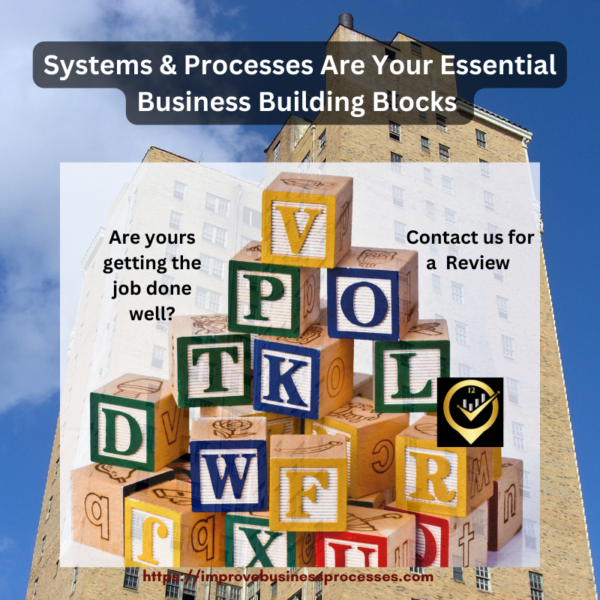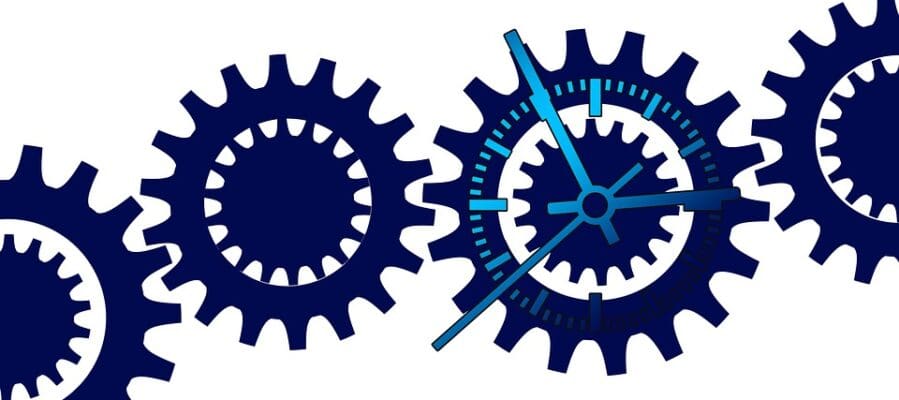A clear understanding of the difference between business systems and processes is essential to achieving business success. The terms are often used interchangeably, although they are two separate concepts which operate hand-in-hand to ensure operations run smoothly.
In this article, we will explore the difference between business systems and processes, their purpose, and the benefits of integrating them.
You might think that you already know them, but by the end of this article, you will better understand their differences and how they work together to improve business efficiency.
Definition of Business Systems
Business systems are interrelated components that help define an organization’s mission, goals, and objectives. They can include both physical components, such as technology and tools , and intangible components, such as organizational structure.
Systems provide a framework for an organization to coordinate activities and operations, facilitate decision-making and communications, and define the roles and responsibilities of the individuals and groups involved.
Definition of Processes
Business processes are the specific methods and activities used by an organization to accomplish its goals and objectives. Processes are often composed of multiple steps, each of which can be achieved by various methods and can change over time.
Processes are iterative, meaning they can be improved or modified over time to increase efficiency and effectiveness.
What is the Difference Between Systems and Processes?
Business systems and processes are often confused and used interchangeably. However, there are distinct differences between the two.
In essence, systems are the ‘what’, and processes are the ‘how’ of a business.
Systems are the foundation of a business, and processes are the engines that drive it.
Without the right systems, processes cannot be efficient, and without the right processes, systems may not be effective. Understanding the differences between these two elements is essential for ensuring business success.
"At its core, a fully functioning business is basically a set of systems and processes" - John Jantsch (Duct tape Marketing)
Creating Effective Systems Should Be Central to Small Business Systems
The purpose of business systems is to create a standardized set of methods and procedures to achieve a particular goal. Business systems provide organizations with a way to structure their operations and processes to maximize efficiency and minimize errors.
Small businesses that side-step creating effective systems consistently hit roadblocks.
Effective business systems are the basic building blocks of every successful business and are a formula for success. For a small business, they help eliminate overwhelm, confusion and chaos that can quickly set in.
At the core they have the following 6 elements – processes, components (documents, equipment, software, databases etc), people, quality, efficiency and productivity, and measurements.
Systems, ensure that all necessary tasks are completed in a timely manner and that no essential details are overlooked. This is all done while creating and maintaining proper documentation and records with enhanced communication between departments.

Characteristics of Good Systems – What is the Difference Between Systems and Processes?
- accomplish business objectives and goals
- consistently provide customers with their “ask”
- eliminate waste of resources – man hours, materials for reject and re-work
- improve efficiency and remove roadblocks
- improve productivity
- reduce costs
- increase sales and growth
- decrease employee turnover
- eliminate business chaos and daily frustrations
The Purpose of Processes
Processes are an important part of any successful business. They allow companies to be more efficient and effective in their operations by incorporating controls, standards, and guidelines for carrying out tasks.
Business processes help define how employees interact with customers, how employees produce products, and how departments communicate with each other.
They are often used to document and track progress, reduce errors, and increase operational efficiency.
"Broken processes lead to disorganization, confusion, and chaos, while smooth running systems allow us to move quickly and efficiently....... The exact systems that worked for me may not pertain to you. It is up to you to find the systems that will benefit you the most - Ron Carroll
Benefits of Integrating Systems and Processes
Businesses of all sizes can benefit from the integration of systems and processes. By unifying both, organizations can reduce operational costs, streamline workflow, and improve efficiency.
Operating on a single platform (wherever possible) that combine the best systems and processes can enable businesses to be more agile and more quickly respond to customer needs.
Furthermore, integrating systems and processes allow businesses to automate certain tasks and reduce the amount of manual labor needed to carry out daily operations.
This improves data accuracy and ensures that tasks are completed on time. As a result, businesses can save time, money, and other resources while providing better customer service.
Conclusion – What is the Difference Between Systems and Processes?
Now that you better understand the difference between systems and processes, you can better appreciate that the interrelationship between business systems and processes is an important one that can have a major impact on the success of that organization.
Business systems provide structure and organization to the organization, while processes are the way in which these systems are implemented.
By understanding the differences between the two and integrating them, organizations can experience improved efficiency, better decision-making, and increased customer satisfaction.
By taking advantage of the benefits of both systems and processes, organizations can ensure that they remain competitive in their respective industries and continue to grow.
Related Articles
- Create Business Systems – Learn How to Move From Chaos to Clarity
- How to Build a Business System – Tips and Examples
- Types of Business Systems – How to Apply to Small Businesses
- What Causes Chaos in Business Operations – Time to Stop It
- What is a Business Management System – Think Business Goals
- What is a Business System – How to Create Consistency
- How to Create Systems in Small Business – 7 Steps

